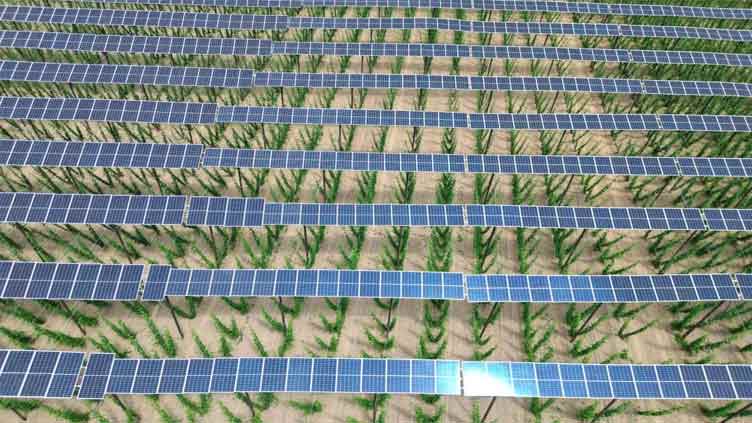Renewable share of German power use climbs to 52.3pc in first months this year

Business
Germany wants green energy to account for 80pc of its mix by 2030
FRANKFURT (Reuters) – Renewable energy accounted for 52.3 per cent of Germany's power consumption in the first six months of the year, up 3.1 points from a year earlier, on higher solar production and lower overall electricity usage, data showed on Tuesday.
That was up from a renewable share of 49.2pc in the first six months of 2022, according to utility group BDEW and the Centre for Solar Energy and Hydrogen Research (ZSW).
Germany wants green power from solar, wind, biomass and hydroelectric generation to account for 80pc of its energy mix by 2030, as it abandons nuclear power and aims to cut most of its coal generation and use gas plants mostly for grid back-up.
The preliminary figures showed higher photovoltaic production in May and June, due to favourable weather.
They also reflected far lower power consumption in the first half of 2023 when electricity usage fell 6.5pc year-on-year to 262.8 terawatt hours, BDEW noted in a statement.
The data was calculated under a European Union requirement to base the green share on usage rather than production, a method adopted by the Berlin government for its climate targets, BDEW said.
Domestic electricity production fell 10.8pc to 265.9 terawatt hours in the six-month period, including production for export, the data showed.
Renewables, at 137.5 terawatt hours, represented 51.7pc of total output, up from 46.4pc in first half 2022, even as green power production volumes decreased by 0.6pc.
Conventional energy sources - nuclear, coal, natural gas and oil - provided 128.4 terawatt hours of output, down from 160.0 terawatt hours a year earlier.
The fall in conventional production reflected the phase-out of nuclear energy by mid-April and operators cutting output to match weak demand.

